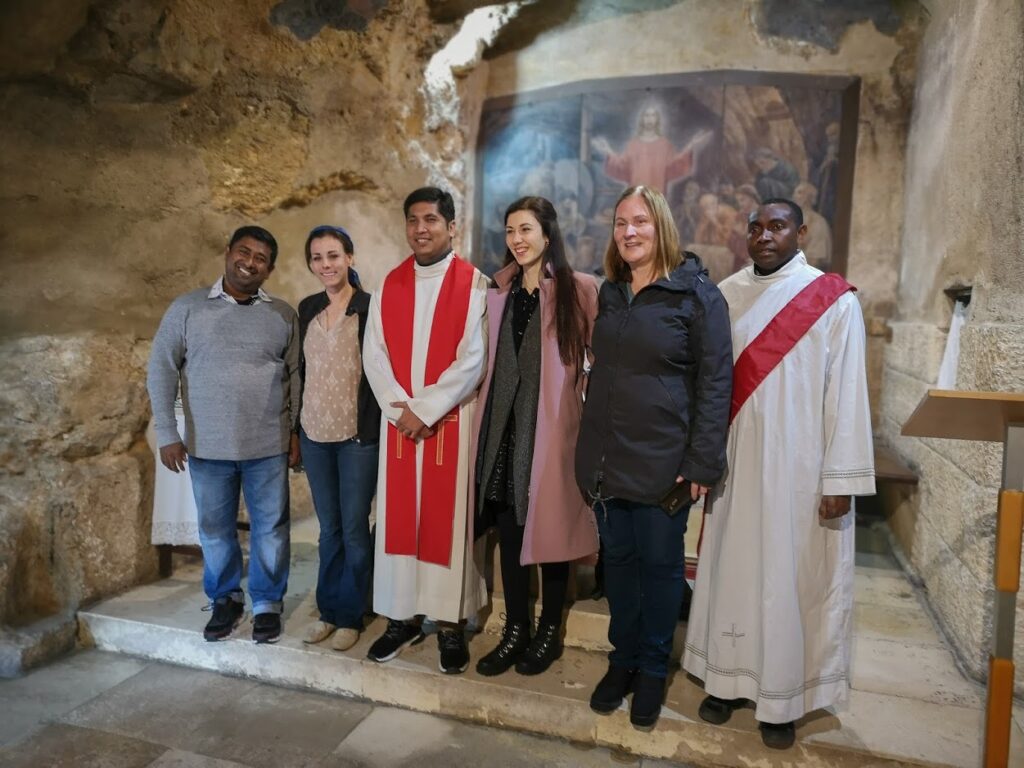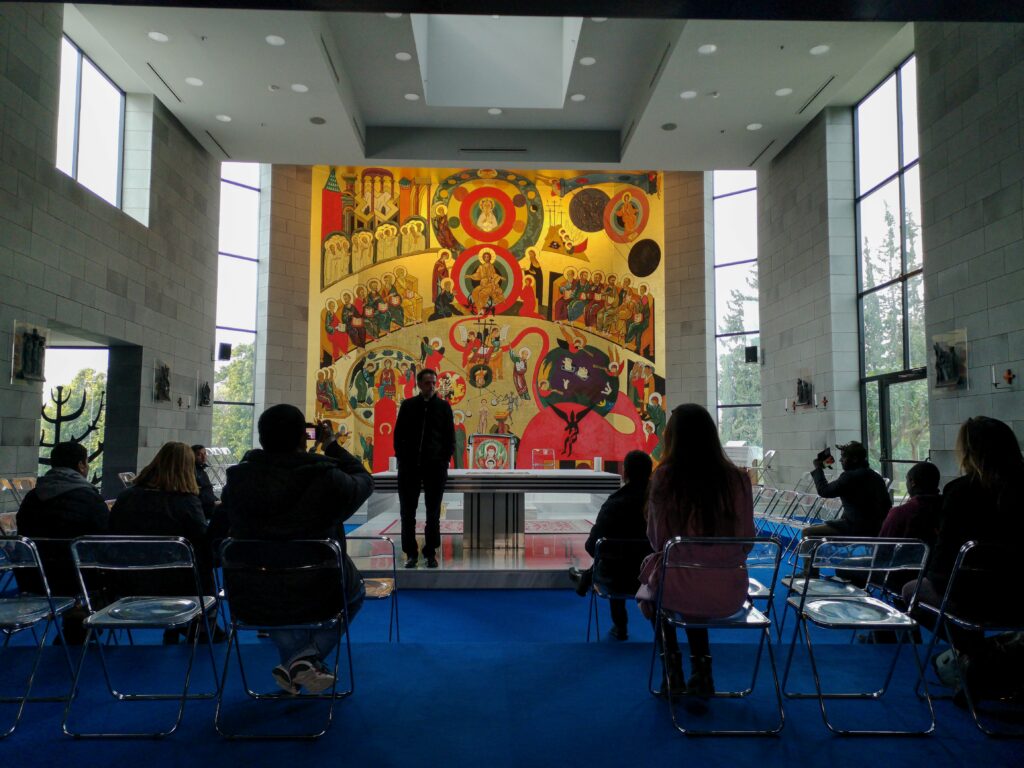The John Paul II Center’s Russell Berrie Cohort XII traveled to Israel this month on a study tour, where they studied Judaism at the Shalom Hartman Institute, visited museums, and saw holy sites of all three monotheistic religions.
Below is fellow McKenzie Flowers Fergus’ reflection on the trip:
From Old City Jerusalem to the storied Jordan river, Nazareth and beyond, the Russell Berrie Fellows experienced an immersion experience of unity and defining interreligious dialogue that will likely continue to shape our academic and personal journey. Solidarity flourished, as we witnessed the wonders of the Holy Land together, and shared common goals such as, a deep commitment to interreligious dialogue. While attending mass, whether at the sea of Galilee or the Garden of Gethsemane, we sat in awe imagining and contextualizing a land known from reading biblical scripture, but better envisioned in actuality.
Throughout this seminar and study-tour in Israel, the fellow’s encouraged one another to pose difficult questions (particularly on topics of interreligious dialogue). We’ve learned, imagined, dreamed, questioned, collaborated, laughed, studied, and prayed together. At the Shalom Hartman Institute, for instance, we discovered new tools (such as the Midrash); resources that may only advance a robust theological study and understanding of interfaith dialogue.
The fellows exchanged “food for thought” with passionate advocates of interfaith dialogue. We ate immaculate amounts of exquisite food sprawled-out on massive plates with Israel’s leading human rights activists, NGO leaders, professionals, and politicians. In laughing and breaking bread together, we were honored with the opportunity to learn from firsthand accounts about interreligious dialogue, as it is paved by diverging paths of shared experiences, positive interactions, and constructive conversations.
During this study-travel seminar, in a land where religion shapes Israeli culture and lifestyle, we envision a practical application of interfaith dialogue and its ability to transform relations between communities.
Furthermore, we conceptualize newfound ways to promote peace and interreligious dialogue in our hometown regions. The fellows uncover and examine an extraordinary interreligious mosaic of vision that we collectively and individually design. As we incorporate valuable insights into our individual knowledge-base, we collectively build bridges to a common ground. This interreligious engagement only further lays the platform for future peacebuilding operations along with a promotion of interfaith understanding, as we return to our communities to strengthen and foster religious ties better prepared and empowered to listen and to lead.


